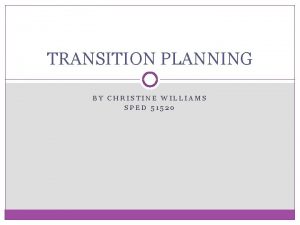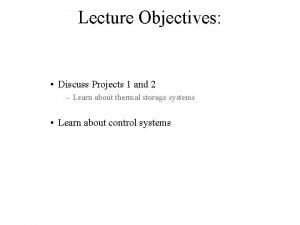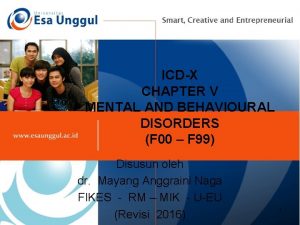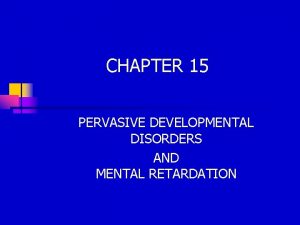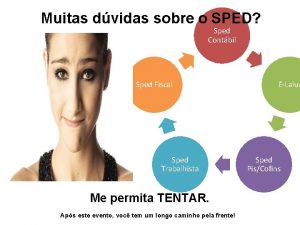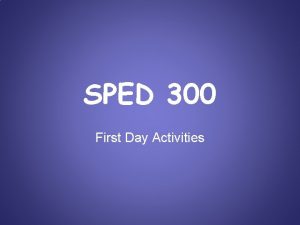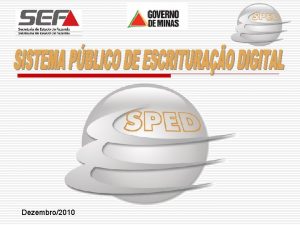Mental Retardation SPED 300 Mild Mental Retardation l










- Slides: 10

Mental Retardation SPED 300

Mild Mental Retardation l l l IQ scores between 55 to 70 Need only intermittent to limited support Typically do not “look” different from their non-disabled peers Academic function may be the only noticeable area of disability Often not identified until entering school Case study: “John”

Moderate to Severe Mental Retardation l l l l IQ scores between 35 to 54 = moderate IQ scores between 20 -34 = severe Need limited to extensive supports Likely to have “recognizable” syndrome such as Down Syndrome Significant developmental delays Typically identified as infants or toddlers Limited adult independence

Moderate to Severe Mental Retardation l l Group homes or semi-independent living situations Family counseling and respite care if continue living with family Oftentimes work will be in sheltered workshops, with payment matching productivity Case study: “Mary”

Profound Mental Retardation l l l IQ scores below 20 Need services at the pervasive level, typically throughout their lives Likely to have multiple disabilities, especially in areas of mobility and communication Some live in institutions but most live in group homes Case study: “Ronald”

Inclusionary Tactics l l Team approach with roles assigned through IEP Direct Instruction • Model the concept • Provide structured practice • Give ample feedback • Opportunities for guided and independent practice

Inclusionary Tactics l Task Variation • Previously learned tasks are interspersed with those that have been recently mastered l Computer-Assisted Instruction • Used in combination with teacher-directed • instruction Provides guided and independent practice

Inclusionary Tactics l l l Cooperative learning groups Peer tutoring “Lecture-Pause” approach • 6 -8 minutes of lecture • 2 -4 minute pauses to discuss lecture and share notes in small groups

Inclusionary Tactics l l Paraprofessional in the classroom Flexible learning objectives Provide concrete, not abstract, examples Integrate daily living skills (e. g. , use of deodorant after gym class)

Summary l l l Education used to be in separate classrooms and schools Now 90% attend regular schools and about one-third spend 40% of the school day in mainstream classrooms Even those with severe or profound MR may be included in regular classrooms for a least part of the day
